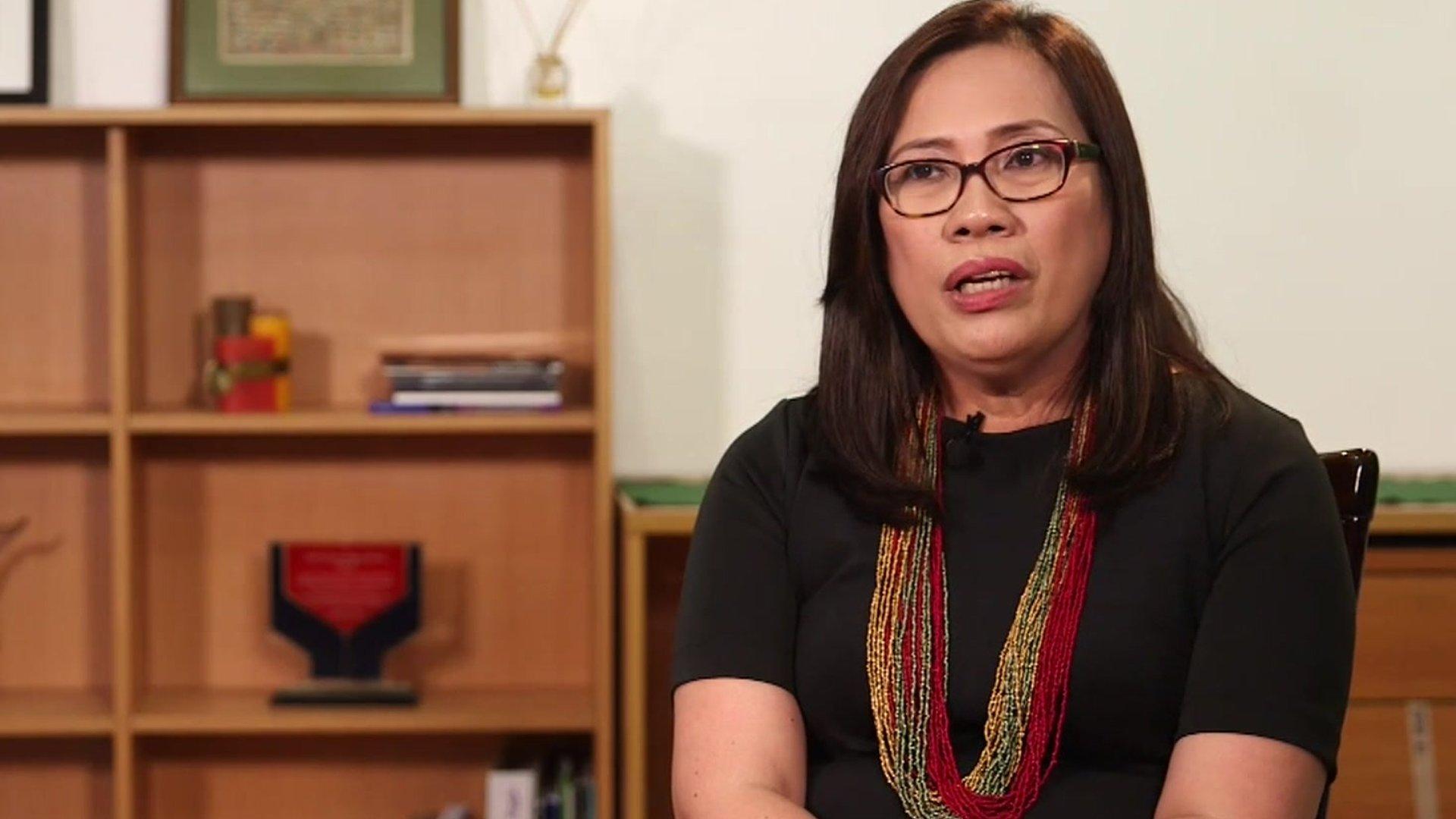Oxfam sex scandal: Director promises justice for victims
- Published
Oxfam head: 'I know we have a problem'
Oxfam says it will set up a commission to investigate past and present allegations of exploitation by staff.
Oxfam International's executive director Winnie Byanyima said it would "do justice" and "atone for the past".
She invited victims to come forward "for justice to be done" for them, saying she was "here for all the women who have been abused".
The British charity has faced criticism over the way it handled claims staff hired prostitutes in Haiti in 2011.
Meanwhile, UN Secretary General Antonio Gutteres told the BBC there must be "zero tolerance" of sexual misconduct within the aid community.
Ms Byanyima, the most senior Oxfam executive to speak on the issue, said she first heard of the controversy after news reports last week.
She said the organisation was "hurt", but added: "There is no way this organisation can die... the world needs it."
In an interview with the BBC's diplomatic correspondent James Landale, she switched to speaking in the Ugandan language of Runyankore to make an apology: "From the bottom of my heart forgive us, forgive Oxfam."
She admitted she could not guarantee there were not sex offenders currently working at the organisation but vowed Oxfam would "build a new culture that doesn't tolerate that behaviour".
Charity reform
She said the reforms at Oxfam would include:
setting up a high-level independent commission that will look into culture and practices at the organisation, with a mandate to investigate past and current claims of sexual exploitation
more than tripling the budget for the charity's safeguarding team, and doubling the number of staff working in the department
setting up a global database of accredited referees to ensure sex offenders cannot falsify references and reoffend at other charities
making the organisation's "whistleblowing mechanism" external, safe and confidential
Mr Gutteres said Oxfam were "very reliable partners" during his time as UN high commissioner for refugees and he hoped the charity would "overcome this difficulty and to do everything necessary to re-establish... normal operations".
He added: "In relation to sexual harassment and sexual exploitation... These are widespread problems that all organisations - international organisations, national organisations, the private sector - have and they need to fight it very strongly."
Earlier this month, news reports said that during a humanitarian mission in Haiti in 2011, the charity's country director Roland van Hauwermeiren hired prostitutes at a villa paid for by Oxfam.
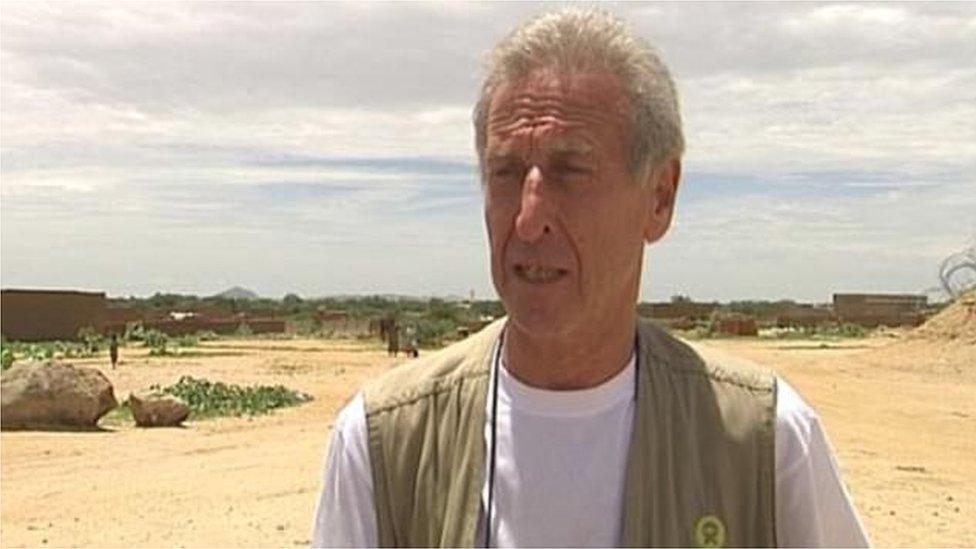
Roland Van Hauwermeiren worked in Chad from 2006-09 before going to Haiti in 2010
Mr Van Hauwermeiren, who left Oxfam in 2011 amid a sexual misconduct inquiry, has denied hiring prostitutes but said he had "intimate relations" with a woman who was "not a prostitute".
Oxfam had staff working in Haiti following the earthquake in the country which killed about 200,000 people in 2010.
As a result of the revelation, the charity has faced severe criticism from the British government and the Haitian president.
What do Haitians think of the foreign charities operating in their country?
International Development Secretary Penny Mordaunt has threatened to cut the charity's government funding, which was £32m last year.
The charity has also lost a number of celebrity ambassadors including Good Will Hunting actress Minnie Driver, and Nobel Peace Prize winner Archbishop Desmond Tutu.
Ms Byanyima said she was sad to lose ambassadors she "respects so much", but added: "What hurts me most is out there in Haiti, there are poor women who have been abused and have not received justice."
Meanwhile, Oxfam's chief executive Mark Goldring has used an interview in the Guardian, external to repeat his apology for the charity's failings, while maintaining that "the scale and the intensity of the attacks feels out of proportion to the level of culpability".
The UK's Charity Commission is to launch a full inquiry into Oxfam, saying the organisation may not have "full and frankly disclosed material details" about the Haiti sex scandal.
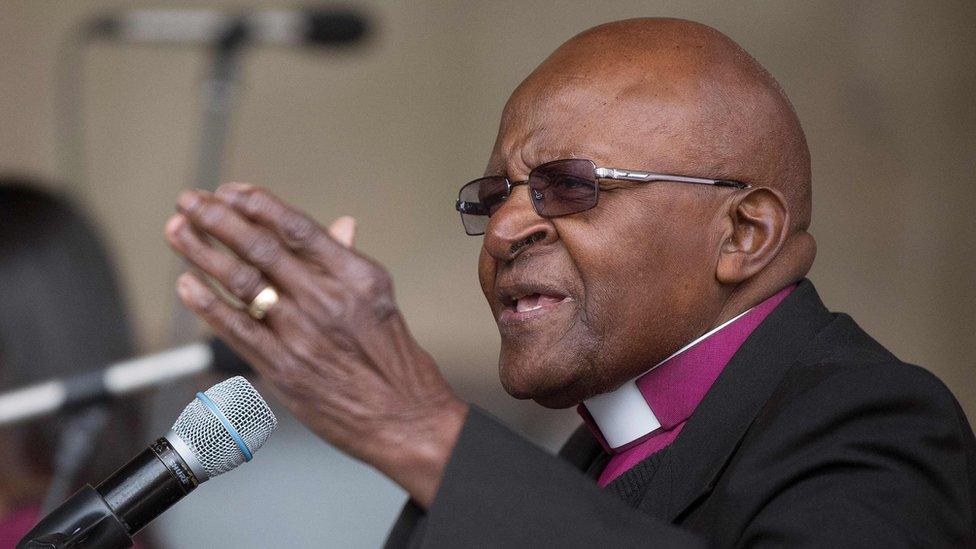
Archbishop Tutu is "deeply disappointed" over alleged misconduct at Oxfam
On Thursday a new allegation came to light that a worker fired by Oxfam over sexual misconduct allegations in Haiti was rehired later the same year by the charity.
Oxfam said its decision to rehire the man in Ethiopia was a "serious error".
Oxfam has almost 10,000 staff working in more than 90 countries across the globe.
- Published16 February 2018
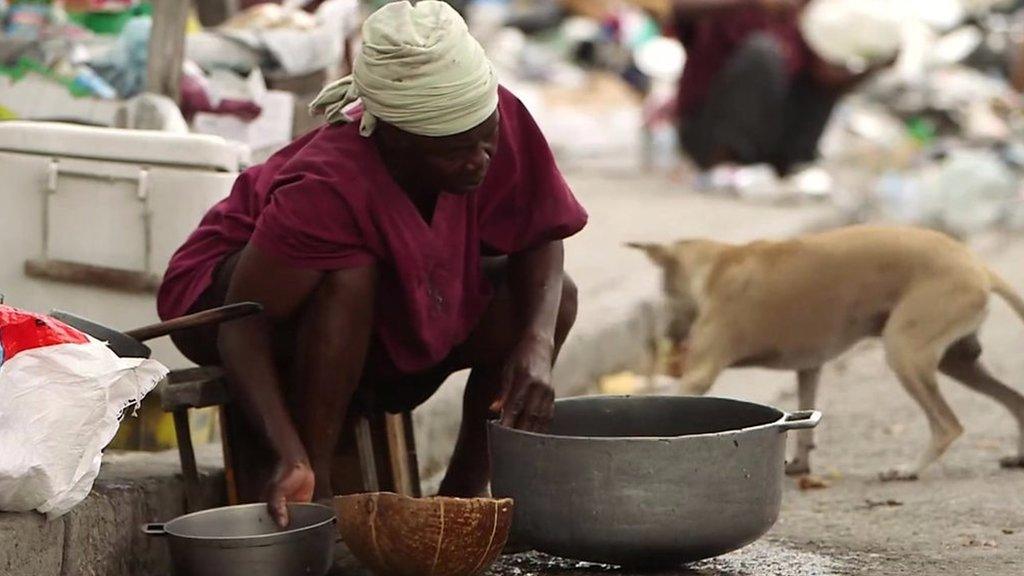
- Published15 February 2018
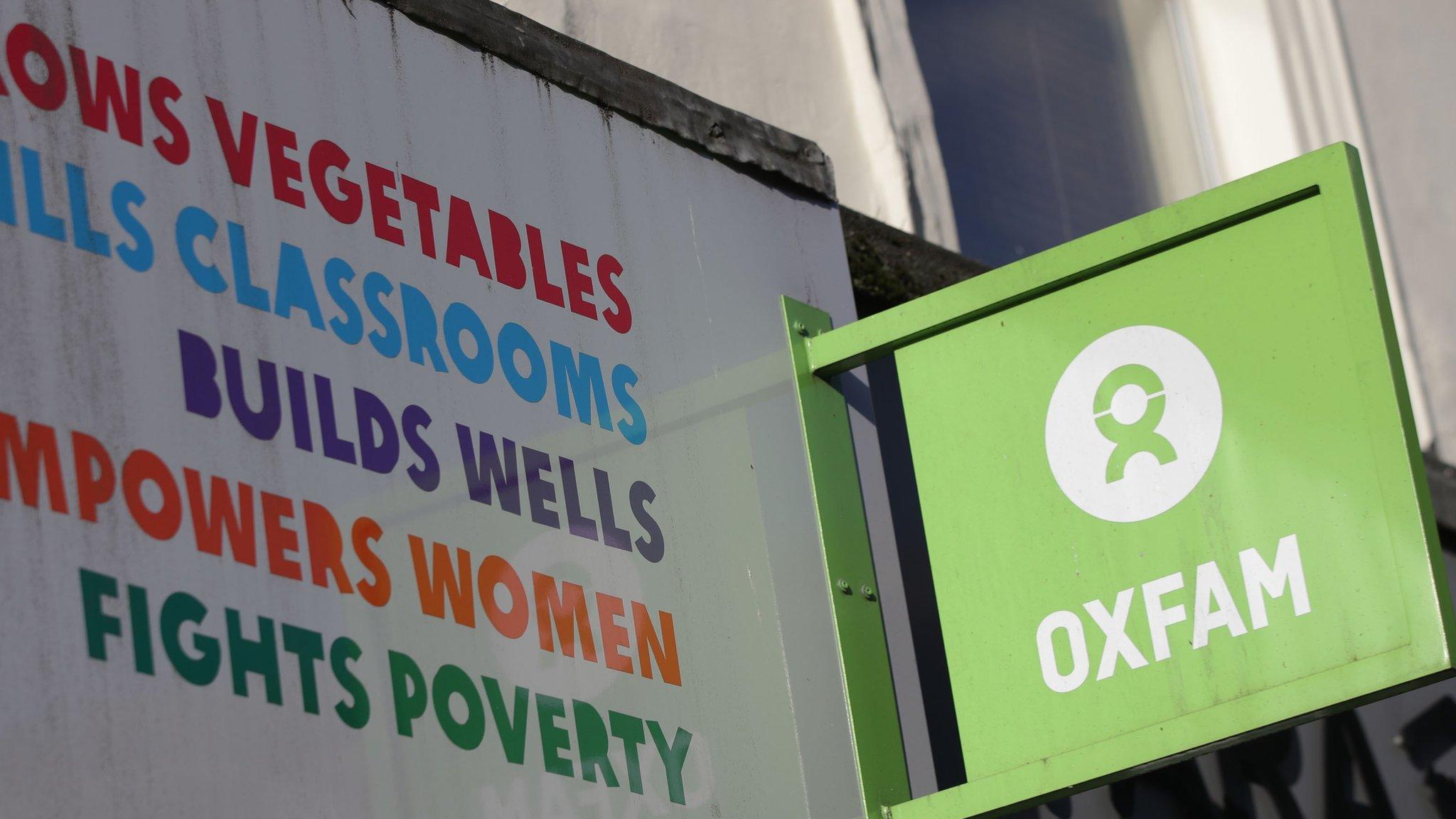
- Published15 February 2018
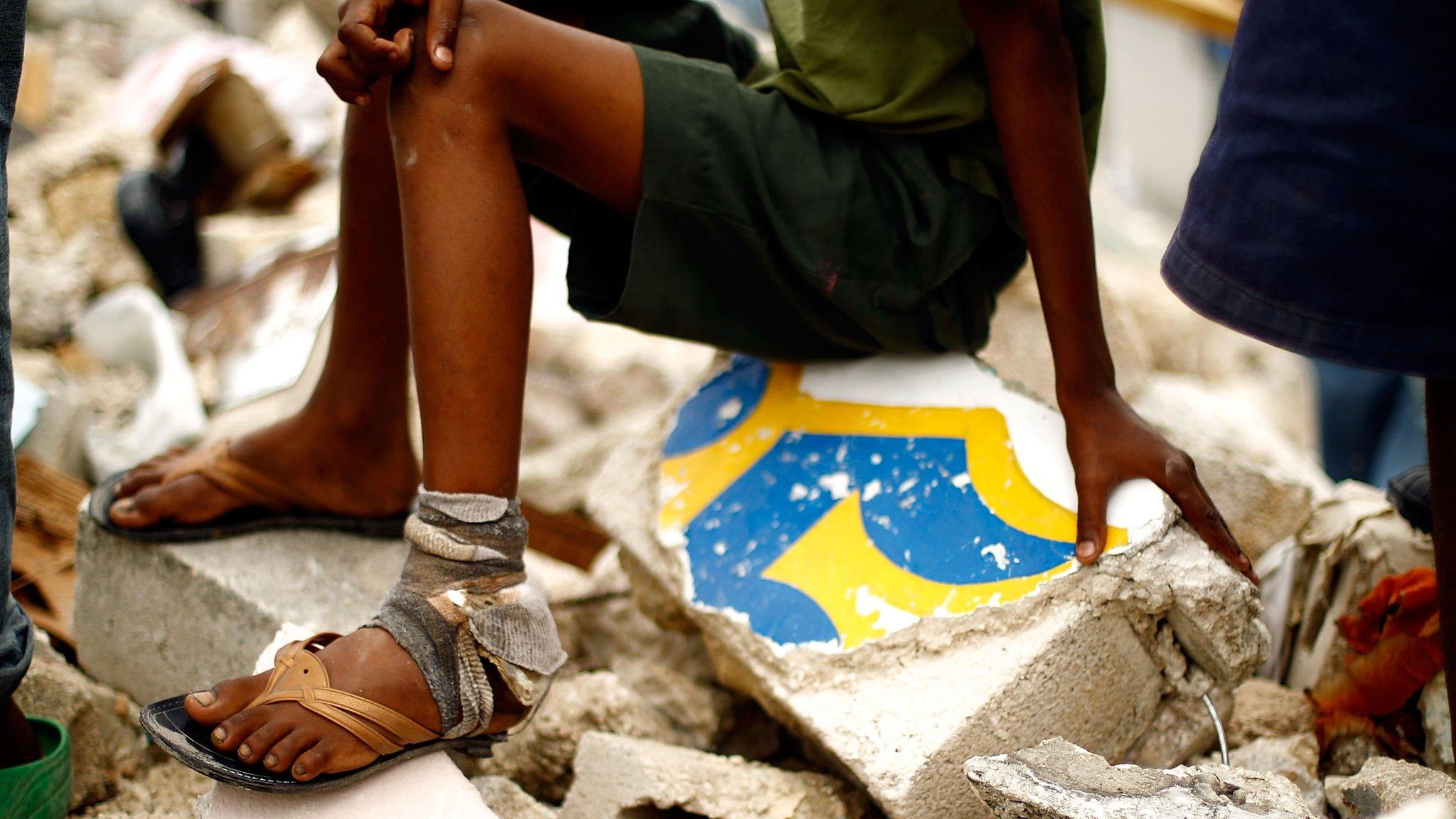
- Published14 February 2018
